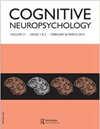镜像感觉共感症患者的非典型情绪分享。
IF 2.6
3区 心理学
Q2 PSYCHOLOGY
引用次数: 0
摘要
能够与他人产生共鸣是日常生活中的一项重要能力。然而,这通常并不意味着我们要通过自己的身体来感受他人的痛苦。然而,对于患有镜像感觉共感症(MSS)的人来说,这种形式的共情体现是一种常见特征。我们的研究通过一项基于视频的移情任务,对患有镜像感觉共感症的成年人的移情能力进行了调查。我们发现,MSS 参与者在情绪识别和情感共鸣方面与对照组没有差异;但是,与对照组相比,他们表现出更高的情感共鸣(他们的情感与他们归因于他人的情感相吻合的程度)。这一结果表明,他们在区分自我与他人时遇到了困难,而我们的数据显示,这导致他们亲社会行为的迹象较少。我们的研究结果与 MSS 的自他控制理论相一致,并强调了使用适当的移情测量方法如何有助于我们了解这种重要的社会情感能力,无论是在典型人群还是在非典型人群中。本文章由计算机程序翻译,如有差异,请以英文原文为准。
Atypical emotion sharing in individuals with mirror sensory synaesthesia.
Being able to empathise with others is a crucial ability in everyday life. However, this does not usually entail feeling the pain of others in our own bodies. For individuals with mirror-sensory synaesthesia (MSS), however, this form of empathic embodiment is a common feature. Our study investigates the empathic ability of adults who experience MSS using a video-based empathy task. We found that MSS participants did not differ from controls on emotion identification and affective empathy; however, they showed higher affect sharing (degree to which their affect matches what they attribute to others) than controls. This finding indicates difficulties with self-other distinction, which our data shows results in fewer signs of prosocial behaviour. Our findings are in line with the self-other control theory of MSS and highlight how the use of appropriate empathy measures can contribute to our understanding of this important socio-affective ability, both in typical and atypical populations.
求助全文
通过发布文献求助,成功后即可免费获取论文全文。
去求助
来源期刊

Cognitive Neuropsychology
医学-心理学
CiteScore
5.50
自引率
11.80%
发文量
23
审稿时长
>12 weeks
期刊介绍:
Cognitive Neuropsychology is of interest to cognitive scientists and neuroscientists, neuropsychologists, neurologists, psycholinguists, speech pathologists, physiotherapists, and psychiatrists.
 求助内容:
求助内容: 应助结果提醒方式:
应助结果提醒方式:


